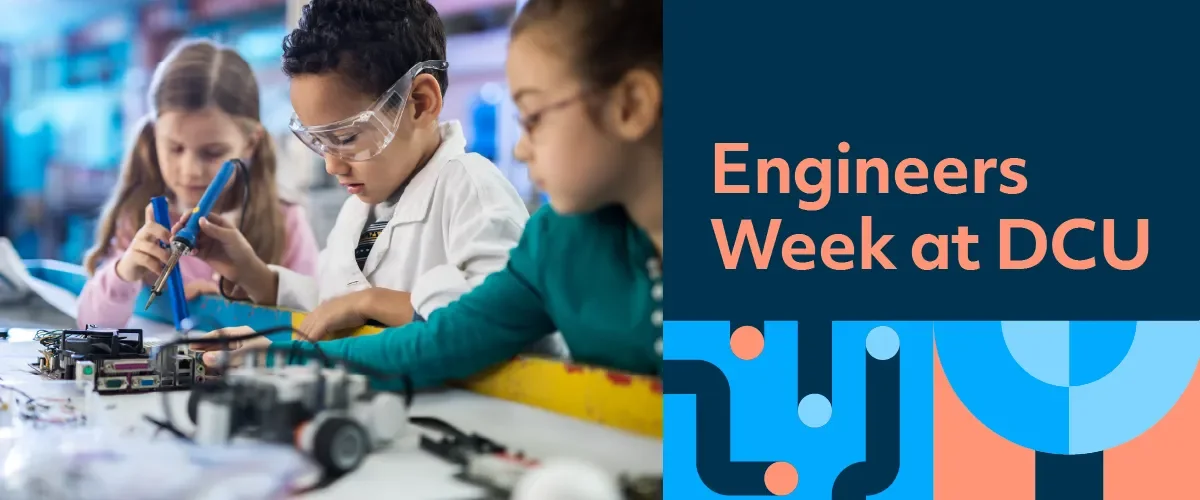

Mechatronic Engineering
Mechatronic Engineering (or Mechatronics for short) is a special type of engineering that combines different areas like mechanical engineering, electrical engineering, and computer science. These engineers use their knowledge to create machines that can move and react on their own, like robots.
Mechatronics engineers design and build machines that can do tasks automatically, without needing someone to control them. They use their knowledge of mechanical engineering to design the physical parts of the machine, like the body and motors. They also use their electrical engineering skills to design and integrate electrical systems, like circuits and sensors, that allow the machine to sense its surroundings and make decisions. So basically, they create machines that can think and move on their own!
As a robotics or mechatronics engineer, you could design aircraft avionics for autonomous drones, build robots for industry or medicine, develop smartphone-based systems, or enable robots to understand human behavior.
Find out more about Mechatronic Engineering (or Mechatronics for short) at DCU here.
#MechatronicEngineering
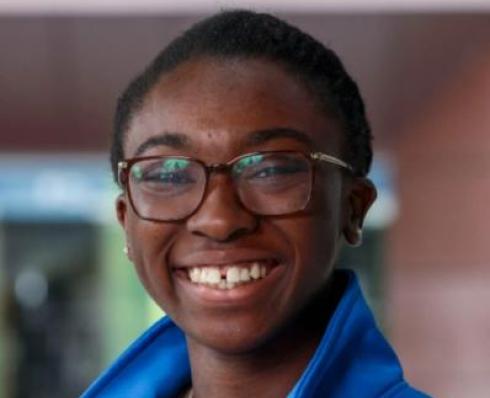
Interview with DCU student Melodie Aremu:
What do you imagine doing with the degree you've chosen?
It's hard to say with Electronic and Computer Engineering. I’d love to work in embedded systems or software development, ideally in a role where I can design and use smart technologies. The mix of hardware and software in this degree really opens a lot of doors. The trouble is choosing the right ones, however options are always good and allow you to explore.
Has the course met your expectations?
Absolutely! I knew it would be challenging, but I’ve been really impressed by the hands-on projects and how much practical experience we get alongside the theory. The balance between coding, circuit design, and problem-solving makes it a really engaging course.
What is your favourite part of the course?
One of my favourite projects so far was designing and programming an autonomous robot. It was a great mix of coding, hardware integration, and teamwork, and it really brought together so many concepts we learned in class.
What are you looking forward to after the degree?
I’m looking forward to applying everything - or at least most of what I’ve learned in a real-world engineering setting, whether that’s in industry or through further research. The skills we develop in this course are so versatile that the career possibilities are really exciting.
What would you tell someone about the course that they might not find out from a prospectus?
It’s a very collaborative course—you're constantly working with classmates on projects, problem-solving together, and learning from each other. The mix of technical and practical skills also makes it a great foundation for almost any career, tech-related or not.
Find out more about Electronic and Computer Engineering here
#DCUEngineering

Mechanical and and Sustainability Engineering
Do you have a passion for the environment? Planet earth is facing tough new challenges. Engineers have an important role to play in developing solutions to these problems and making our world more sustainable.
We have developed an exciting new course in DCU, the BEng in Mechanical and Sustainability Engineering, to prepare graduates to meet the changing world of sustainability and the growing global challenge of transitioning to zero carbon. It's suitable for individuals who have an interest in energy, who care about the environment, and who want to contribute to saving our planet.
Find out more: https://www.dcu.ie/DC194
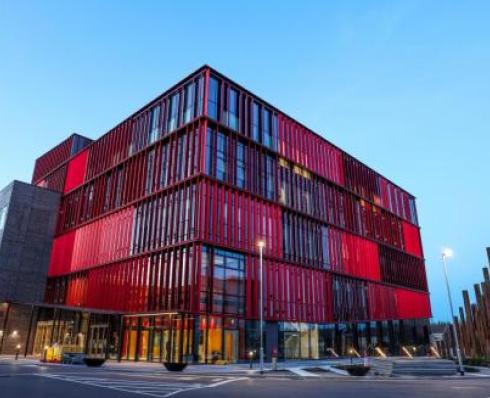
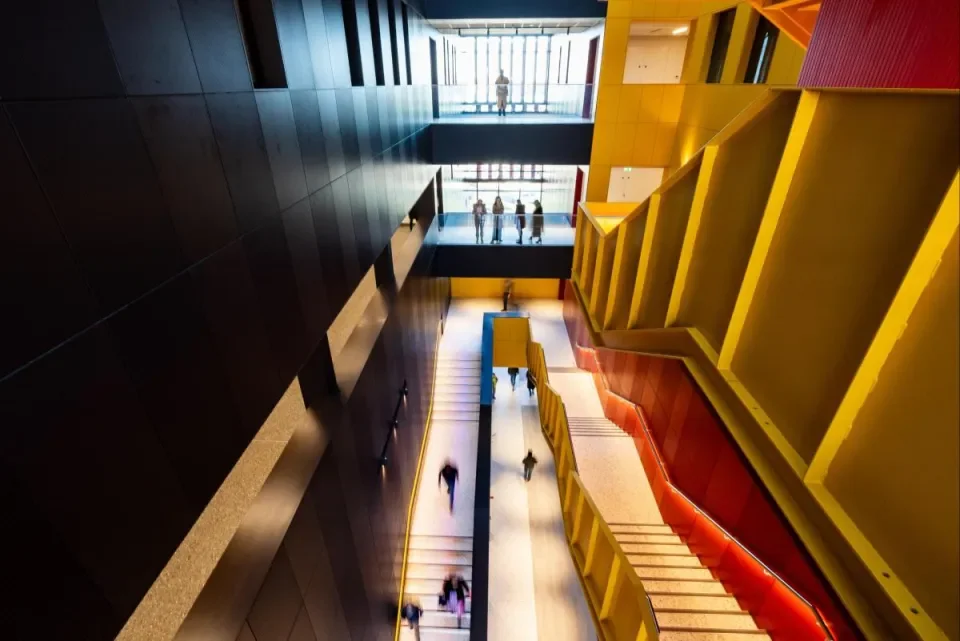
DCU's new state-of-the-art facility
New state-of-the-art Polaris building opens
DCU’s new Polaris building is now officially open and home to some of the most sophisticated facilities including a High Performance Lab focused on high performance sports research, a Life Lab to help students develop improved health literacy, and a Movement Lab that will use state-of-the-art indoor sport facilities to help the local community access data analytics and visualisation techniques.
Polaris is designed as an immersive eco-system that actively breaks down boundaries, sparking collaboration across subjects and between groups, inside and outside the university. Active learning spaces like the planned Industry Robotics Lab and Immersive Visualisation Suite will help students collaborate with industry and peers from around the world, while on-site STEM outreach programmes will help local students explore STEM options at third level.
An Immersive Visualisation Suite is one of the key learning spaces in Polaris. Its VR equipment creates a virtual space where students can collaborate on projects with other students across the globe, or learn from industry experts in a virtual environment.
The building covers 10,000 square metres, has an A Energy Rating, and is designed to be a Net Zero Energy building. It uses heat pump technology and has 300 square metres of PV solar panels on the roof.
#DCUEngineering
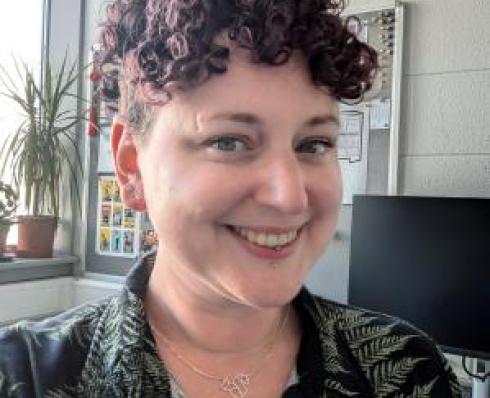
Interview with Dr Leah Ridgway
What do you consider to be the most rewarding aspect of a career in engineering?
I was one of those kids who pulled things apart to see how they worked, and now I’ve learned how to put them back together! Engineering is about making things better and I really enjoy looking at problems in depth and figuring out what can be changed to improve them. For me, I really like how engineering gives you the opportunity to make things and put your knowledge into action, rather than my experience of science at school which felt much more about passively observing and reporting on the experiments we did.
What sparked your interest in your area of research?
My research area is Engineering Education. I come from a technical background and my PhD is in Electronic Engineering; during that time I was a lab demonstrator and discovered how much I enjoyed applying my analysis and design skills to teaching electronics. My research uses mixed-methods, which means I make use of both quantitative and qualitative techniques to understand the processes of how engineers learn, which includes talking to students directly as part of my work. I’m really fascinated by how engineers use diagrams as these can be really information dense and in electronics, you can draw a circuit which is electrically the same with a lot of different physical layouts on a page.
What do you think DCU offers to students that will help them after leaving university?
What really stands out at DCU is the INTRA (industrial placement) scheme. I’ve worked at multiple universities and INTRA is an truly incredible opportunity that really sets students up for their first graduate job by giving real-world experience that looks great on a CV. Many universities will offer an option of an industrial placement, but the length of time that DCU has been running the scheme and that it’s a core part of all our engineering programmes make it first class.
What advice would you give to someone thinking about pursuing a career in engineering?
Choosing to study engineering can be really tricky if you don’t already know any engineers as it’s not a subject that everyone can study at school, so it can feel like a leap into the unknown. If you can, attend an engineering camp or a taster session which will give you hands-on experience. Even if you can’t do that, there’s so much good information and case studies of recent graduates talking about their experiences so you can make an informed choice. I think it’s also important to say that having a degree in engineering doesn’t mean you have to stay an engineer forever – a lot of our graduates go into data and management jobs as an engineering degree gives you a solid foundation in analytical and systems thinking skills, which are really valued.
Find out more about Electronic and Computer Engineering here
#DCUEngineering
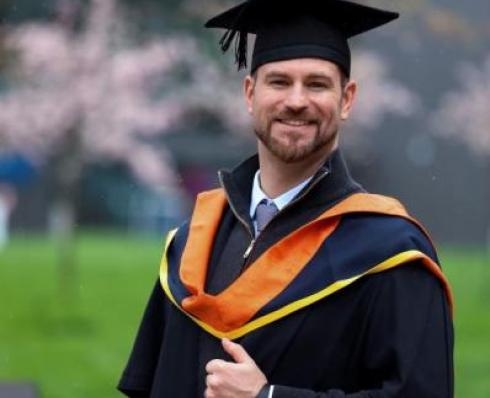
Meet MEng in Sustainable Energy Systems graduate Aaron Jennings
Aaron Jennings, who initially faced doubts about his engineering credentials despite a strong background in product design and industry experience, transformed his career through DCU’s Engineering access programme. Realising that his career was limited without a formal engineering degree, he embarked on a challenging one-year intensive course that paved the way to his Master’s in Engineering (MEng). With the support of dedicated lecturers, valuable resources like the DCU Maths Centre, and flexible online lectures during the Covid pandemic, Aaron was able to manage his dyslexia and fully embrace the academic rigour required to succeed.
Balancing full-time work at Harp Renewables with his studies, Aaron specialised in Sustainable Energy Systems, culminating in a dissertation that demonstrated significant energy savings for composting units. His hard work and achievements were later recognised when he was headhunted by Certification Europe as an ISO auditor in environmental and energy management. Aaron’s journey not only highlights the transformative power of targeted educational programmes for career changers but also serves as a valuable lesson for future students to carefully select their major modules to align with their career aspirations.
Read more about Aaron here
#DCUEngineering

Common Entry into Engineering at DCU
Engineers invent and design things, they make things work and analyse and solve problems, often using mathematical and software tools. Their impact on the world is pervasive and often pioneering.
Engineering solutions help patients with enhanced diagnostic imaging, improved hearing devices, better blood vessel implants and laser surgery. Engineering solutions continue to improve the way we live, driving advances in digital technology, such as Smart Cities, that have the possibility of revolutionising how we interact with technology, while at the same time improving sustainability through advances in areas such as green energy technologies.
If you’re interested in engineering, but haven’t yet made a choice between courses, Common Entry into Engineering at DCU helps you to choose a speciality while learning the fundamentals of engineering. Find out more here.
#DCUEngineering
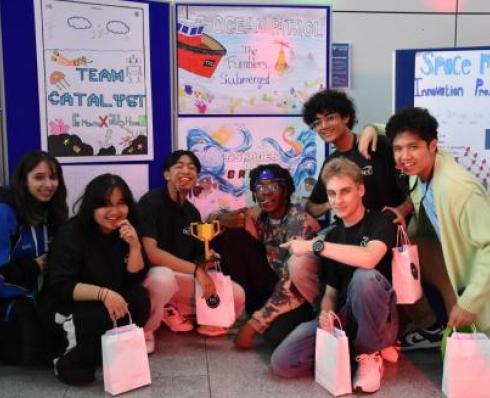
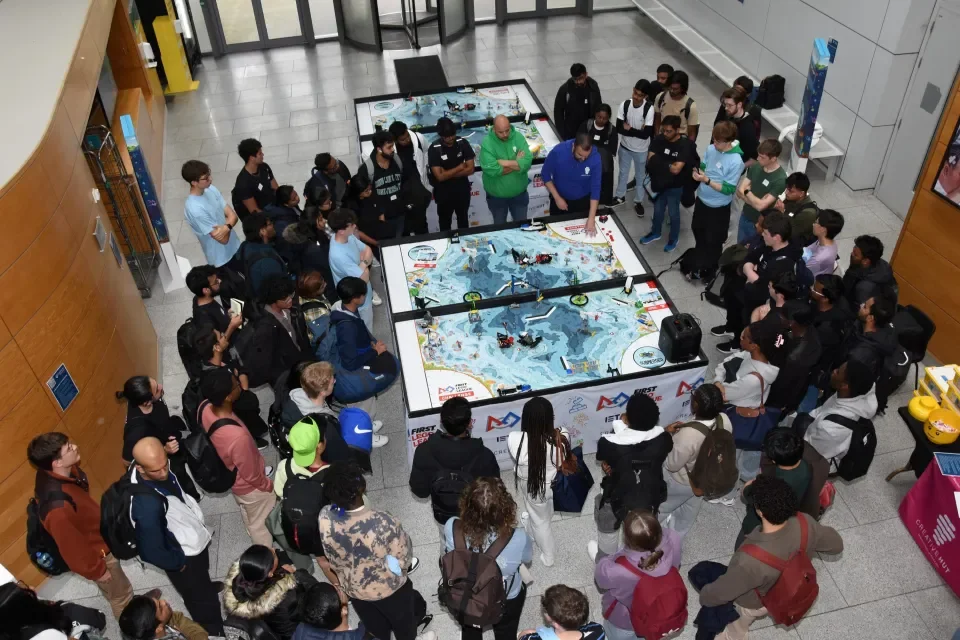
Students gather around the challenge map
FIRST® LEGO® League Challenge SUBMERGED℠ Hackathon
DCU hosted the FIRST® LEGO® League Hackathon on 4–5 October, where 13 teams from the Faculties of Engineering and Computing and Science and Health, alongside the DCU Institute of Education, built and battled with LEGO® robots. The event, organised by the DCU Faculty of Engineering and Computing in partnership with the DCU Engineering Society and CreativeHUT and supported by AWS InCommunities and Engineers Ireland, saw team ‘Six Shades of Brown’ take overall honours under the leadership of second-year Computer Science student Gabriel Ross Lugares, excelling across Innovation Project, Robot Design, Robot Game, and Core Values.
Other teams also shone, with ‘Team Aquanauts’ scoring 220 points in the SUBMERGED® Robot Game, while The Fumblers, Team Catalyst, and Team Synergy Squad received awards for their Core Values, Innovation Project, and best Robot Design respectively. The hackathon, part of the FIRST® LEGO® League—a competition that encourages children to think like scientists and engineers—challenged both 11–16-year-olds and university students to design innovative, real-world solutions addressing underwater challenges, with support from the Science Foundation Ireland Discover Programme, the IET, and local partners.
Read the full story here
#DCUEngineering
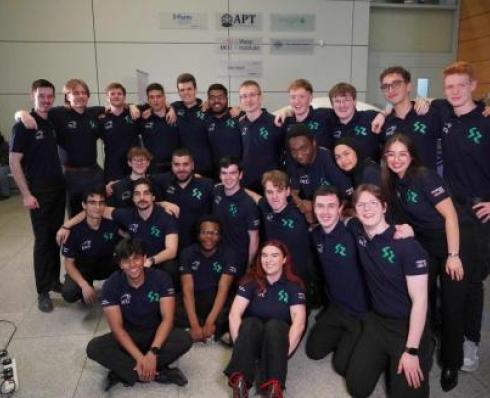
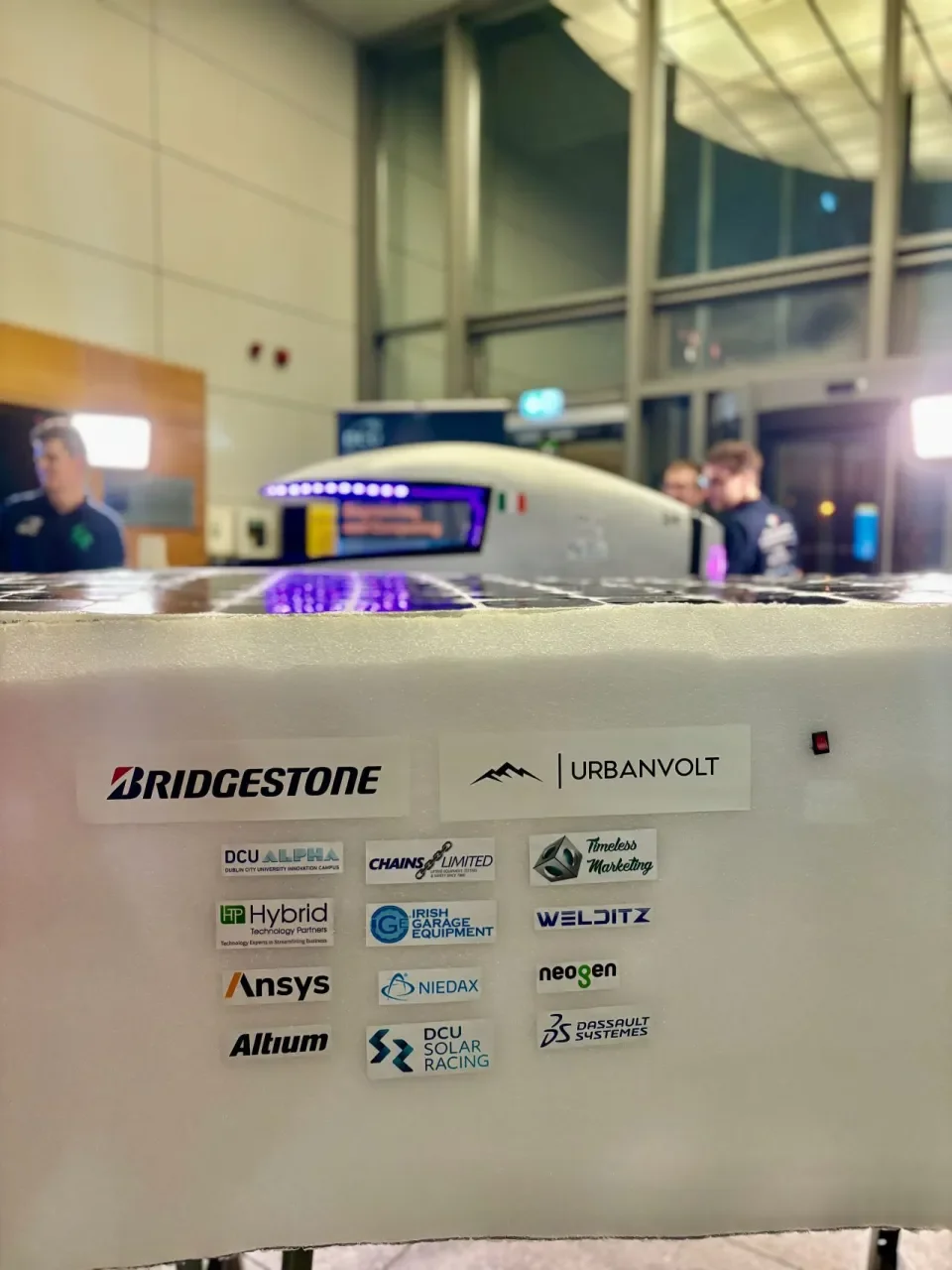
Sponsors unveiled for DCU Solar Racing
DCU Solar Racing
DCU Solar Racing is a pioneering student-led organisation within Dublin City University, dedicated to Engineers Ireland’s first-ever solar racing car. With a diverse team of approximately 40 students from various disciplines, they are united by a common goal: to push the boundaries of solar-powered vehicle technology and demonstrate the incredible potential of renewable energy in transportation.
The team have designed and built a car that they want to enter into the Bridgestone World Solar Challenge. The Bridgestone World Solar Challenge is the world’s greatest innovation and engineering challenge playing a key role in exploring green technology, energy efficiency, and mobility possibilities.
Primarily a design competition, this biennial event seeks to inspire some of the brightest young people on the planet to address the imperatives of sustainable transport and the development of energy efficient vehicles as part of the global challenge to decarbonise mobility. The event features three classes that represent the diversity of energy efficient vehicles and their differing design philosophies.
Discover more about the team here
#DCUEngineering
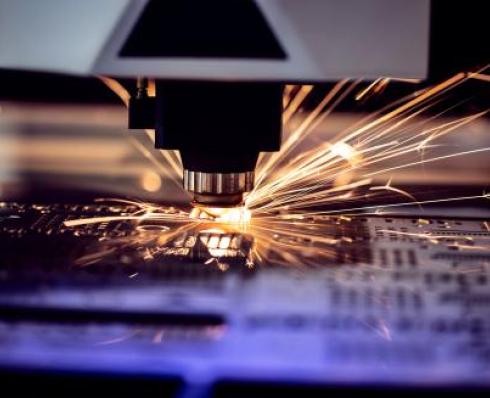
Electronic and Computer Engineering at DCU
The world is more connected than ever before, and that’s only going to grow. It's no longer just computers and smartphones that are digitally connected. From fridges to TVs, alarms to mirrors, more and more devices are finding their way online.
Electronic and computer engineers create and innovate to invent, design, improve and build products and technologies that really matter in people’s lives. Watch our video to find out more about Electronic and Computer Engineering at DCU: https://www.dcu.ie/DC190
#DCUEngineering
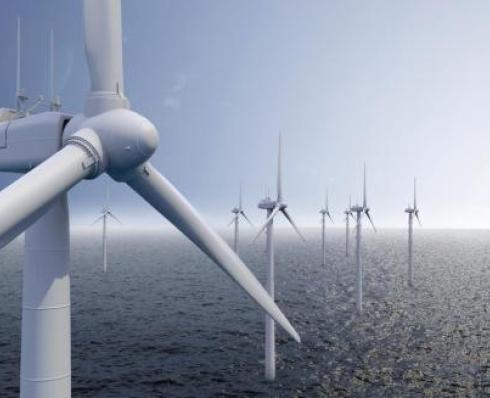
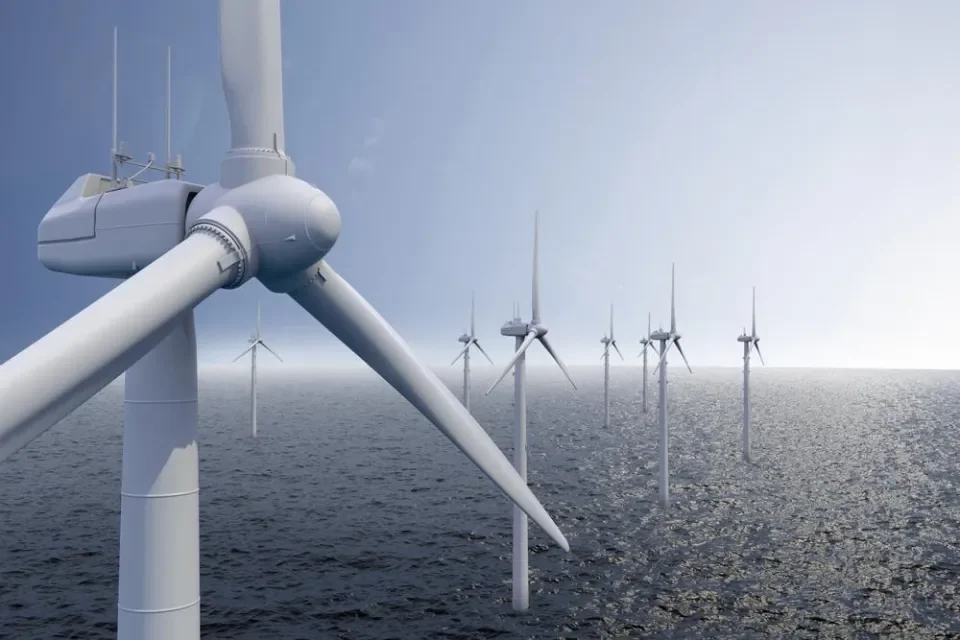
Ireland's offshore wind energy potential
Ireland's wind energy potential
New research by Dr James G. Carton, Assistant Professor in Sustainable Energy at DCU, and Bill Duggan, Research Assistant at DCU, highlights Ireland’s need to develop ports to capitalise on its vast offshore wind potential. Their study, published in the Irish Examiner, explains that Ireland’s wind resource is divided into fixed-bottom installations—a mature technology—and floating installations, which are still emerging. While countries like France, Norway, and Spain are advancing floating offshore wind projects, Ireland faces significant challenges.
Due to these challenges, the research suggests that Ireland may not roll out floating offshore wind developments in the Atlantic until at least 2030. Although there are promising opportunities in the Irish and Celtic Seas, the country lacks the necessary port infrastructure, with potential sites including Foynes, Bantry, and Bremore, while Rosslare does not offer the required depth. Additionally, the port requirements differ for floating turbines compared to fixed-bottom turbines, which begin with installing foundations such as monopiles or gravity-based structures.
Read the full story here
#SustainabilityEngineering #DCUEngineering
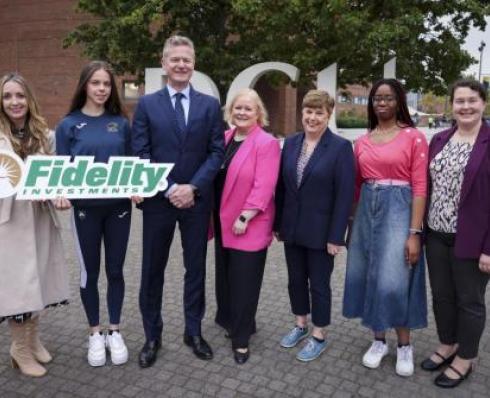
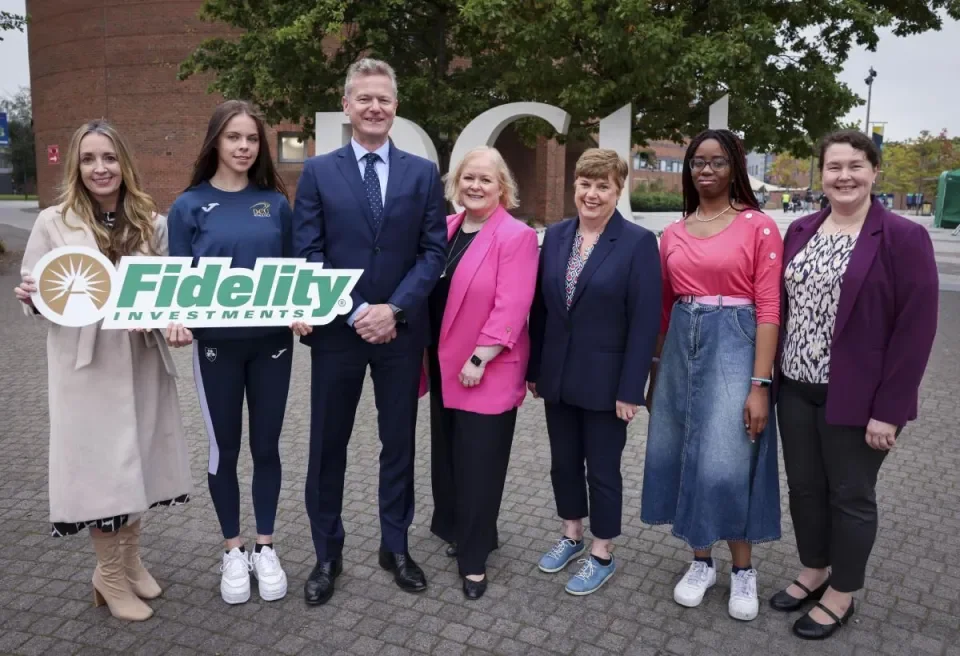
Fidelity launch renewed partnership with DCU
Fidelity and DCU launch new partnership
Fidelity Investments Ireland and Dublin City University have launched a new four-year collaboration aimed at addressing the persistent underrepresentation of women in STEM. Working alongside DCU’s Faculty of Engineering and Computing, DCU Sport, and the DCU Access Programme, the initiative will provide a range of scholarships and support to encourage young women from diverse backgrounds to pursue careers in science, technology, engineering, and maths.
The Fidelity Investments Ireland Women in STEM Fund will award scholarships to women from socio-economically disadvantaged communities, support female student athletes, and introduce a new scholarship for women studying for a BSc in Computing at DCU. Additionally, Fidelity Investments Ireland will take part in a series of initiatives, including the ComputeTY outreach programme, mentoring and career visioning sessions, Engineers Week events, and a Women in STEM prize for final-year students, all designed to promote STEM courses and career pathways.
Find out more here
#DCUEngineering
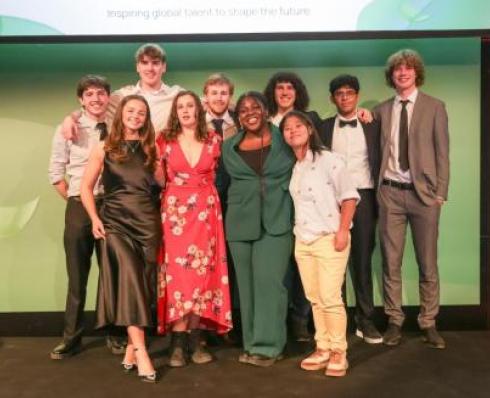
DCU Mechatronics students impress abroad
Two DCU Mechatronic Engineering students, Ciara O’Reilly and Chirag Joshi, achieved notable success at Huawei’s 2024 European Seeds for the Future project in Rome (1–5 July). They were among ten outstanding Irish students to take part, each receiving €1,000 to support their STEM studies. In addition, Team Anaphero—comprising five Irish students including DCU’s Ciara O’Reilly from a consortium with peers from UCD, TU Dublin and UCC—were named regional champions and will advance to the Tech4Good global competition final in China next year with their innovative wearable device that alerts caregivers to early signs of anaphylactic shock using sensors, 5G, and AI.
Another impressive team, Team Upstream, which featured Chirag Joshi, secured a spot in the European region’s Top 10. Their project utilised AI, cloud technology, 5G, and sensors to monitor water quality in real time, promptly notifying residents when the water needed to be boiled before consumption.
Find out more about Mechatronic Engineering here
#DCUEngineering #Mechatronics
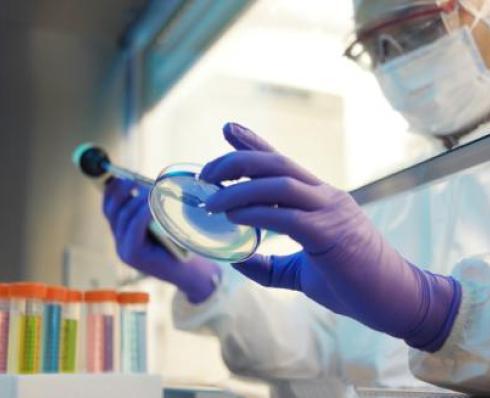
Biomedical Engineering:
From realistic and powerful prosthetic limbs to individually engineered implants, and from high-tech scanners to tiny cameras that can explore blood vessels, biomedical engineers work to develop products at the cutting edge of what is possible to heal and help the human body.
If you’re creative, analytical, inquisitive, and innovative, and keen to work in a fast-growing field with real human impact, this could be the course for you. You’ll get biological and medical knowledge, and technical engineering expertise, so you can solve problems in biomedicine. You’ll study advanced biology, biomaterials, biomechanics, tissue engineering, medical device design, surgical technology, rehabilitation engineering and much more besides
Dr Tanya Levingstone is an Assistant Professor of Biomedical Engineering at DCU. In this video she explains what Biomedical Engineering is and why she choose to explore a career in this sector.
Find out more about the BEng in Biomedical Engineering at DCU: https://www.dcu.ie/DC197
#STEMinDCU
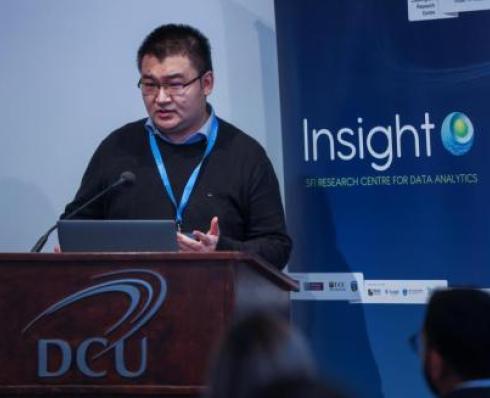
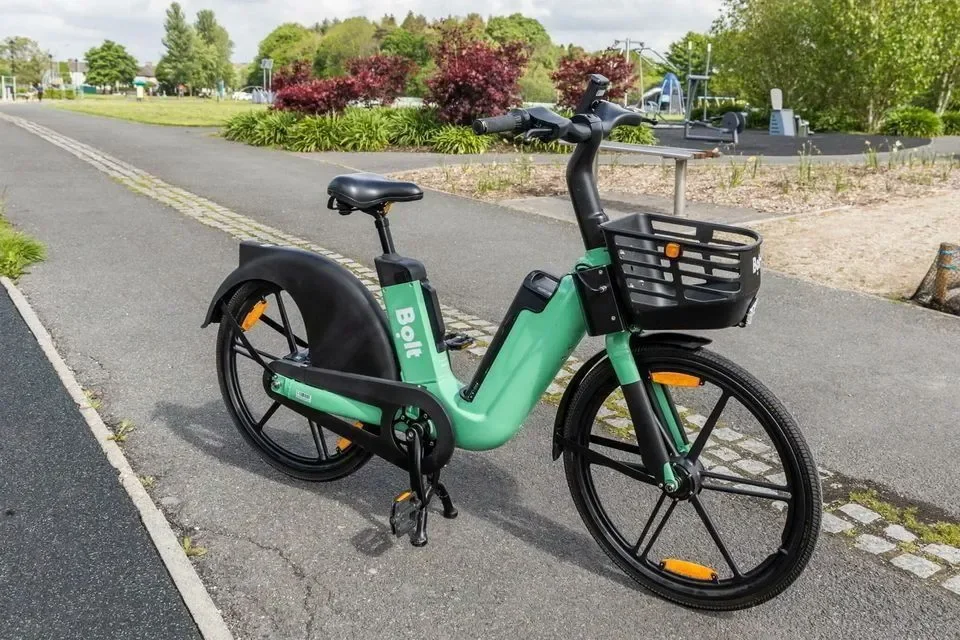
Dublin's e-bike experience
Improving Dublin's E-Bike Experience
Dr Mingming Liu from the DCU School of Electronic Engineering and his team have published several papers on a project aimed at enhancing the user experience of shared e-bikes in Dublin. The project began with the creation of an open dataset, specifically collected in Dublin to accurately model the energy usage of these bikes—a significant improvement over the more generalised data used in previous studies. The researchers further developed a smart parking recommendation system to assist users in parking safely and ensuring easy access to bikes throughout the city.
Their research discovered that up to 12.9% of shared e-bike users failed to park at designated stands due to inadequate planning and distribution, which in turn reduced the service's overall efficiency. In response, Dr Liu’s team created Upark, a smart parking system that integrates historical journey data with real-time trip trajectories to predict both user destinations and the availability of nearby parking spaces, thereby offering accurate and personalised parking suggestions.
Read the full paper here
#DCUEngineering
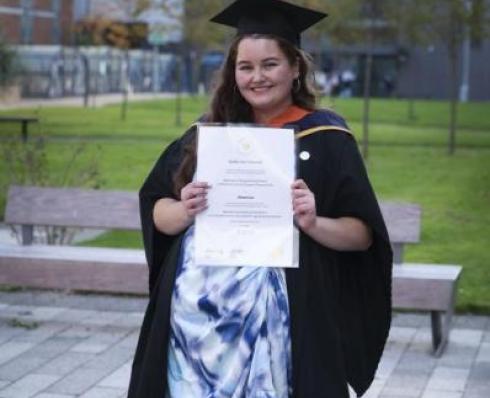
DCU graduate stories: Kirsten Lee
Kirsten Lee, a recent DCU Bachelor of Engineering graduate, discovered her passion for engineering after initially knowing little about the field. Growing up in a working-class family in Finglas, she was the first in her immediate family to attend higher education. A scholarship to DCU’s Centre for Talented Youth Ireland at age 11 sparked her interest in science, and a school guidance counsellor later suggested engineering as a potential career. Although she first considered biomedical engineering, she found her calling in electronic engineering, excelling in circuitry and electronics theory throughout her studies.
Excelling academically and graduating in the top two of her class, Kirsten secured a work placement with Deloitte’s Cloud and Engineering Department, which led to a job offer in their digital health division. Passionate about promoting engineering and increasing female representation in the field, she actively engages in STEM outreach and volunteers with organisations such as Junior Achievement Ireland. With ambitions to eventually return to academia for a PhD, Kirsten is determined to be a role model for future generations of women in engineering.
Read Kirsten's full bio here
#DCUEngineering
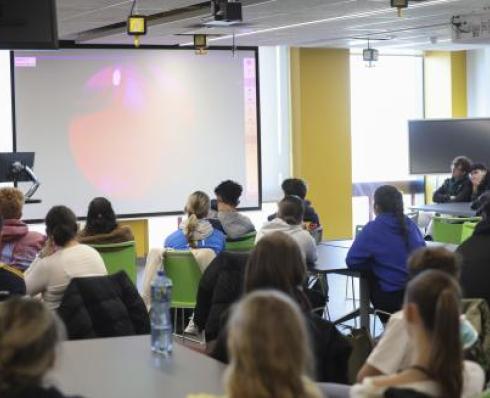
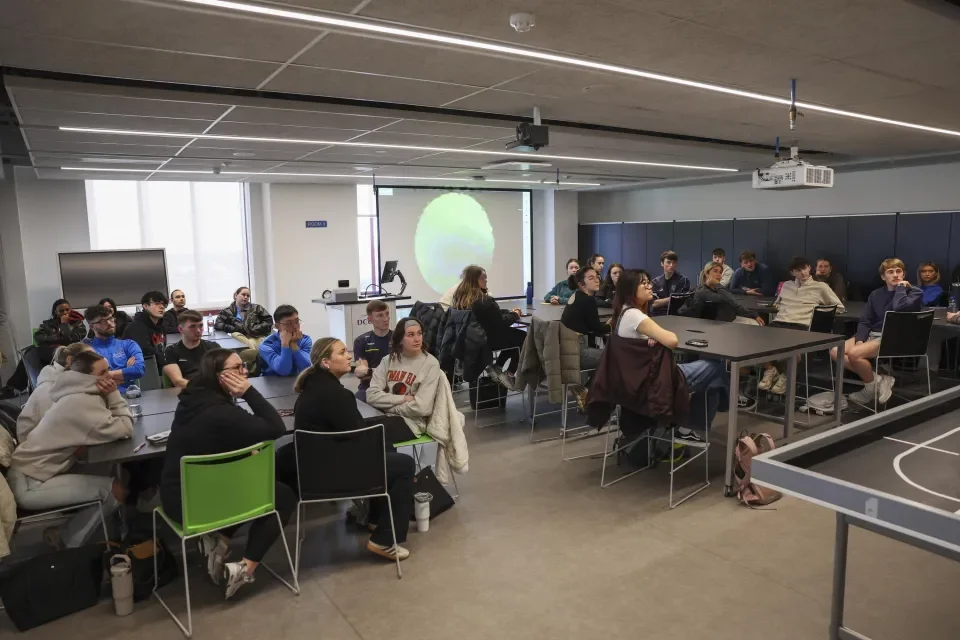
Live-stream shown to students in Polaris
DCU Students Gain First-Hand Surgical Exposure
Students from DCU’s Biomedical Engineering programme, alongside peers from the School of Health and Human Performance, experienced a live-streamed surgical procedure from the UPMC Sports Surgery Clinic in the new state-of-the-art Biomedical Engineering Lab at the Polaris building. The surgery was led by Prof Brian Devitt, Consultant Orthopaedic Surgeon at UPMC SSC and Chair of Orthopaedics and Surgical Biomechanics at DCU, offering students the chance to observe the procedure in real time and engage directly with the surgeons and medical teams.
The event was organised by Dr Tanya Levingstone, Dr Owen Clarkin, and Keith Hickey from the School of Mechanical and Manufacturing Engineering, together with Dr Sinead O’Keefe from the School of Health and Human Performance. This immersive experience provided valuable clinical exposure, giving students clear insights into the practicalities of the clinical environment and inspiring their future careers.
Read the full story here
#DCUEngineering

DCU graduate stories: Megan Shanny Doyle
Megan, a 5th year Masters student in Biomedical Engineering at DCU, has always been passionate about maths and science, and she discovered her calling during the open days in 2018 when she fell in love with the DCU campus. Her course has exceeded her expectations, exposing her to a variety of engineering disciplines—from electronic to mechanical and mechatronic—and offering numerous opportunities for teamwork through projects such as the AGV Design, Boat, and Fireman projects.
A key highlight of her experience has been the INTRA work placement, which provided her with valuable industry experience as a Technical Services Engineering Intern with B. Braun Medical. Megan advises prospective students to get involved in clubs and societies at DCU, noting that her participation with DCU Dance helped balance the rigours of her course, enhanced her overall university experience, and allowed her to make lasting friendships.
Read Megan's full bio here
#DCUEngineering
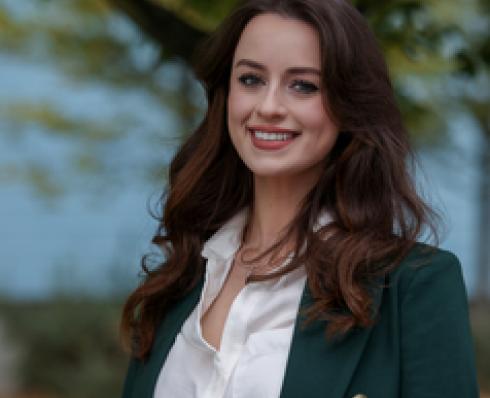
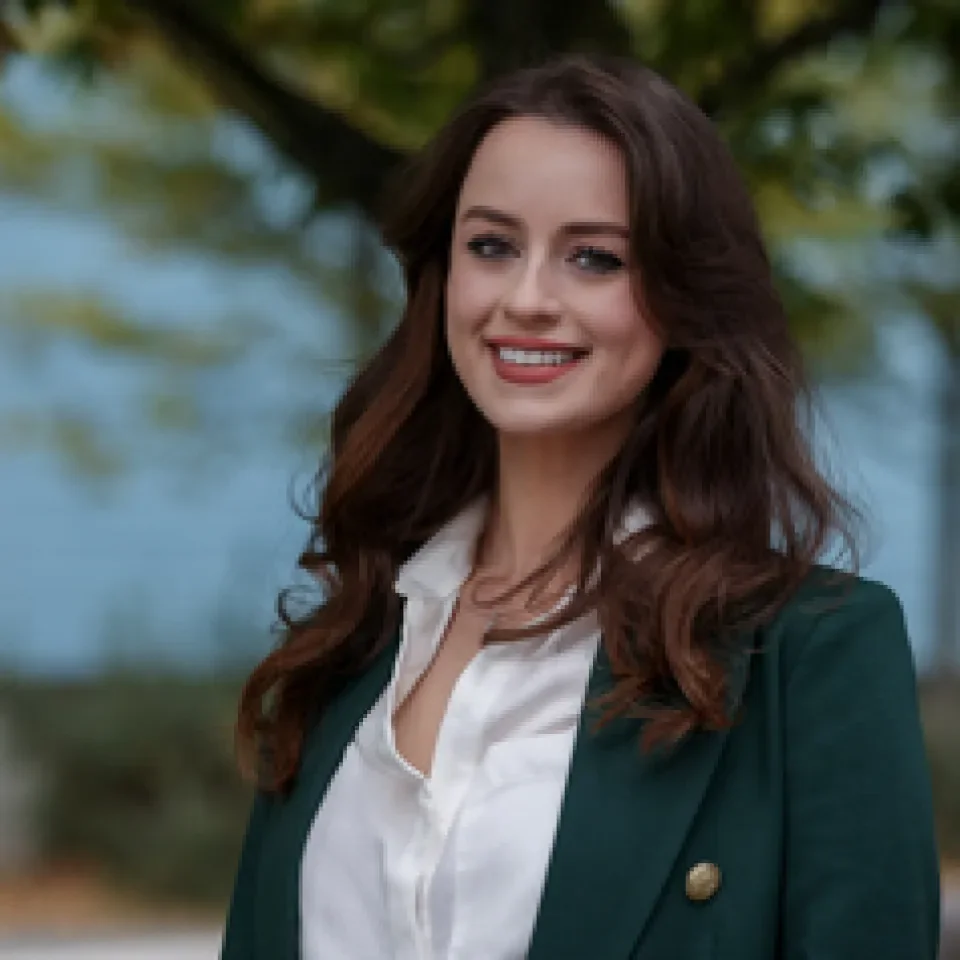
Dr Eadoain Carthy, Assistant Professor in the School of Mechanical and Manufacturing Engineering
Dr Eadaoin Carthy interview on RTE's "Today with Claire Byrne"
Dr Eadaoin Carthy talked on RTE’s “Today with Claire Byrne” show about perfluoroalkyl and polyfluoroalkyl substances (PFAS), also known as “forever chemicals”, and how they pose a significant threat to water sources globally, including in Ireland. These synthetic compounds, known for their durability and resistance to degradation, have been extensively used in various industrial and consumer products since the mid-20th century. Despite their utility, PFAS's persistence in the environment raises concerns about their long-term impact on health and ecosystems.
Studies have detected PFAS in water bodies, soil, air, plants, and wildlife across Europe, particularly in areas with industrial activity such as manufacturing plants and military bases. Exposure to PFAS has been linked to adverse health effects, including hormonal disruption, compromised immunity, and reproductive issues. The widespread presence of PFAS in the environment underscores the urgent need for regulation and mitigation strategies to protect public health and the ecosystem.
Efforts to address the PFAS contamination crisis are underway at both the European and national levels. The European Commission has proposed prohibiting the production and use of PFAS chemicals, with ongoing assessments of the proposal's potential impacts. Additionally, regulatory measures such as restricting PFAS in potable water and firefighting foams are being considered in the United States and various EU member states. The push for stricter regulations and the classification of PFAS as a grouped chemical class signals a growing recognition of the need to minimise exposure and prevent further contamination of water sources.
To listen to the full interview click here
#DCUEngineering
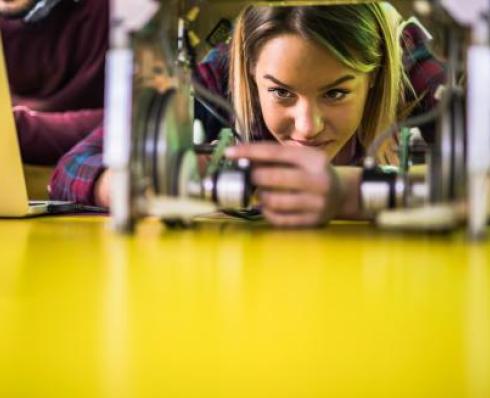
Mechanical and Manufacturing Engineering at DCU
Can you imagine designing and building a better electric vehicle, jet engine or wind turbine? Maybe you’ve figured out a way to improve inhalers or door handles. If you’re fascinated by how things work and are made, enjoy getting caught up in the details, and thrive as part of a team, choose Mechanical and Manufacturing Engineering.
Our students take things apart, figure out how they work and how to fix or improve them, then put them back together again. You’ll get to use 3D printers and other advanced tools in DCU’s state-of-the-art labs, while also absorbing engineering theory. It is at heart a maths-based course, but you’ll also gain extensive skills and knowledge in engineering mechanics, computer simulation and analysis, design and manufacture, and project management.
Find out more about the BEng in Mechanical and Manufacturing Engineering at DCU: https://www.dcu.ie/DC195
#DCUEngineering
